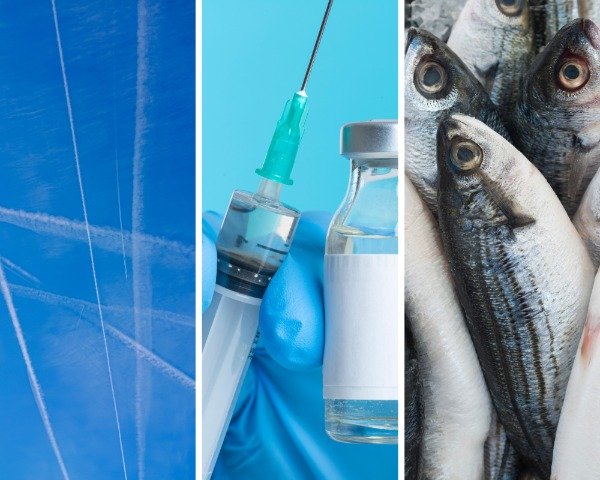The Hidden Sources of Heavy Metals and How they Affect Your Health
This post may contain affiliate links. If you click and purchase, I may earn a small commission at no extra cost to you. Thank you for supporting my blog!
Through my personal journey of research and healing, one thing has become very clear: we are exposed to toxins every single day.
This can feel overwhelming, but my hope is to equip you with the knowledge I’ve learned so you can make more empowered decisions for yourself and your family. Whether you’re caring for little ones or aging parents, staying informed is a vital step in protecting their health and your own.
What Are Heavy Metals?
Heavy metals are naturally occurring elements, but many can be toxic to human health even in small amounts. Common culprits include:
Aluminum
Mercury
Lead
Arsenic
Cadmium
While some metals like zinc and copper are essential in trace amounts, others accumulate in our bodies and contribute to chronic illness.
Common Sources of Heavy Metals
Let’s walk through some of the most common—and sometimes surprising—sources of heavy metals in our modern lives:
Food:
1. Food
Fish & Seafood: Larger, predatory fish like tuna and swordfish often contain high levels of mercury.
Rice Products: Can absorb arsenic from soil and water. California-grown organic rice typically has lower arsenic levels.
Leafy Greens & Root Vegetables: Can contain lead or cadmium from contaminated soil.
Helpful Resources:
By continuously consuming these foods, we inadvertently introduce heavy metals into our systems, making it difficult to avoid exposure entirely.
2. Water
Tap Water: May contain lead from old pipes or arsenic from industrial runoff.
Well Water: Can have higher heavy metal content depending on local soil and contamination.
Check out my article on water and best practices for purification.
3. Air pollution:
Industrial Emissions: Factories and power plants can release mercury, cadmium, and lead.
Vehicle Exhaust: Especially from older vehicles or industrial zones.
4. Household products:
Makeup & Skincare: Some contain trace amounts of mercury, lead, or cadmium.
Cookware: Teflon and chipped ceramic cookware may leach heavy metals.
Dust: Especially in older homes with lead-based paints.
For more insight and sources, check this link: Healthy Cookware for information on ceramic cookware
5. Vaccines & Medications
Some vaccines contain aluminum adjuvants or thimerosal (a mercury-based preservative, mostly phased out in the U.S.).
Some medications may use heavy metals as stabilizers or binders.
👉 It's important to research and consult with your healthcare provider. Alternatives like homeoprophylaxis exist, and every family must choose what’s best for them.
Trusted sources:
6. Occupational or Environmental Exposure
Common among construction workers, painters, and miners.
Tobacco smoke is also a known source of cadmium and lead.
7. Dental Fillings
Amalgam fillings often contain mercury, which can slowly leach into the body over time.
8. Electronic Waste
Discarded electronics can leak heavy metals into the soil and groundwater.
9. Geoengineering (Cloud Seeding):
This controversial practice involves dispersing particles like aluminum and silver iodide into the atmosphere to influence weather for weather modification. These metals eventually fall back to Earth and make their way into our air, water, and food.
🧠 Even small daily exposures can add up. Over time, these metals build up in the body, where they can trigger neurological issues, inflammation, immune dysfunction, and more.
For in-depth articles on geoengineering and its health risks, consult these sources:
The Health Risks of Heavy Metal Accumulation
Heavy metals don’t just pass through the body—they accumulate, especially in the brain, liver, kidneys, and bones. Here are some of the risks:
Alzheimer’s Disease: Linked to aluminum buildup
Parkinson’s Disease: Mercury and lead interfere with dopamine
Cancer: Arsenic and cadmium are known carcinogens
Immune System Dysfunction: Can trigger or worsen autoimmune disease
Organ Damage: Liver and kidneys take the biggest hit
These conditions don’t appear overnight. They often develop silently over years or decades.
Moving Forward: Awareness is Only the Beginning
Learning where heavy metals hide in our everyday lives is the first step toward better health. From what’s in our water and food to the air we breathe, the exposure is constant—but with awareness comes power.
I’ve spent years researching, testing, and applying what I’ve learned to protect my family—and it’s made a difference. But the journey doesn’t stop with understanding exposure. In Part 2, I’ll walk you through how we detox safely, what I avoid (including certain trendy products), and the natural tools and herbs I use and trust—especially for kids.
I’ll also share why I love BIORAY and how their gentle detox support has helped our family. Ready to take the next step?




